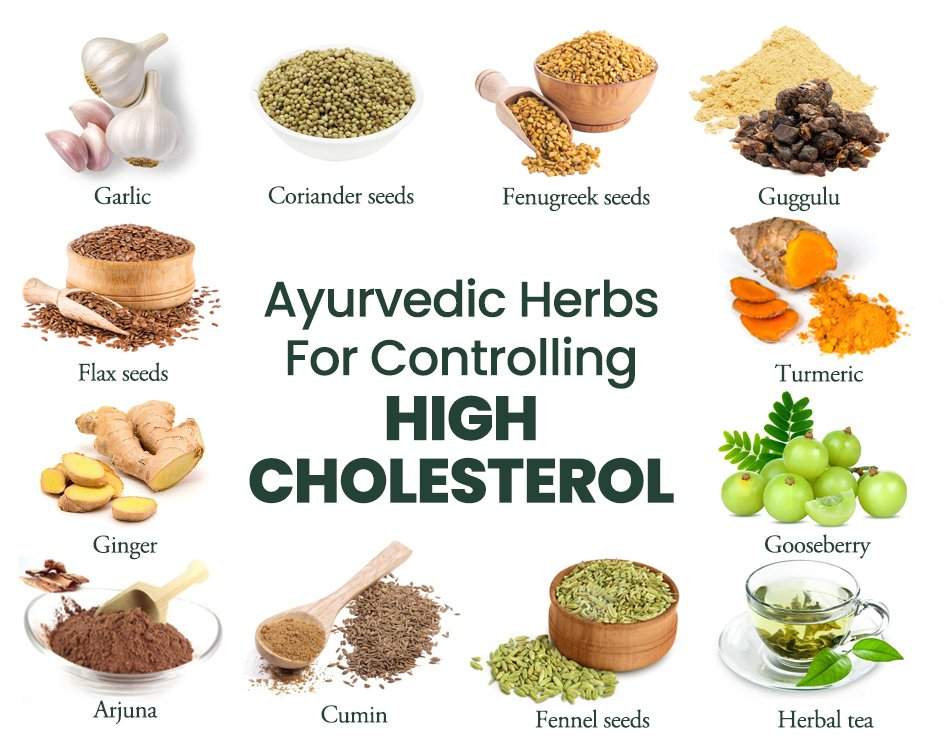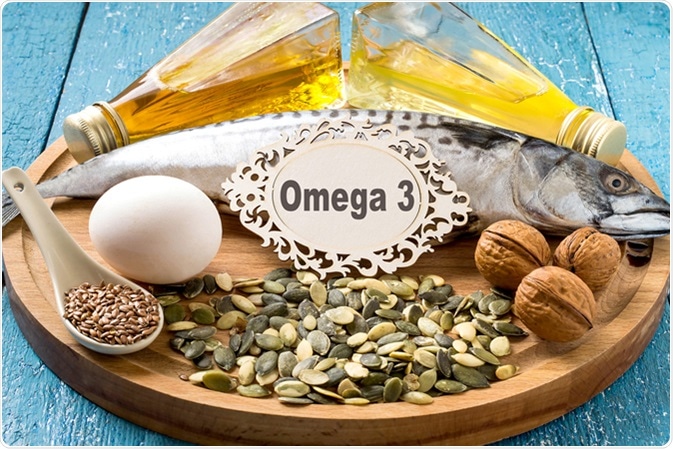6 Natural Ingredients to Lower Cholesterol and Improve Heart Health
 |
| 6 Natural Ways to Lower Cholesterol // Cleveland Clinic Health Essentials |
Discover the Heart-Healthy Benefits of Oats, Garlic, Nuts, Avocado, Fatty Fish, and Berries
R E A D : Annoyed with excess cholesterol, see how to lower cholesterol levels guaranteed to work
>> Maintaining healthy cholesterol levels is crucial for overall heart health and reducing the risk of heart disease. While medication can be an effective treatment, incorporating natural ingredients into your diet can also have a significant impact. There are numerous natural ingredients that have been shown to help reduce high cholesterol levels, including oats, garlic, nuts, avocado, fatty fish, and berries. By adding these ingredients to your diet, you can potentially improve your cholesterol levels and lower the risk of heart disease. In this response, we will explore these six natural ingredients and their benefits in more detail.
6 natural ingredients that can be used to help reduce high cholesterol levels and potentially lower the risk of heart disease:
* Oats
Oats are a type of whole grain that are high in soluble fiber, which can help reduce LDL or "bad" cholesterol levels. Soluble fiber binds to cholesterol in the gut, preventing it from being absorbed into the bloodstream. This leads to a decrease in the amount of LDL cholesterol circulating in the body, which can reduce the risk of heart disease. In addition to its cholesterol-lowering properties, oats also contain other nutrients such as protein, magnesium, and potassium, making them a healthy addition to any diet. Eating oatmeal for breakfast or incorporating oats into smoothies, baked goods, or as a topping for yogurt can be a great way to add this heart-healthy ingredient to your diet.
* Garlic
Garlic has been used for centuries for both culinary and medicinal purposes. Studies have shown that garlic has cholesterol-lowering properties, which may be due to its sulfur-containing compounds. These compounds have been shown to reduce LDL cholesterol levels and may also help prevent the formation of plaque in the arteries, which can reduce the risk of heart disease. Garlic also has anti-inflammatory properties and may help lower blood pressure, which are both important factors in maintaining heart health. Including garlic in your meals or taking garlic supplements may be helpful in reducing cholesterol levels and improving overall heart health.
 |
| Heart-Healthy Ingredients // PCRM.org |
R E A D : Beet Your Way to Better Health: Unleashing the Nutritional Power of Beets
* Avocado
Avocado is a fruit that is high in monounsaturated fats, which are healthy fats that can help improve cholesterol levels. These fats have been shown to increase levels of HDL or "good" cholesterol while reducing levels of LDL or "bad" cholesterol. Avocados are also rich in fiber, which can help reduce the absorption of cholesterol from other foods. In addition to its cholesterol-lowering properties, avocados are also a good source of other nutrients such as potassium, magnesium, and vitamin E. Eating avocado as a spread or adding it to salads or smoothies can be a great way to incorporate this heart-healthy ingredient into your diet.
* Berries
Berries, such as blueberries, strawberries, raspberries, and blackberries, are packed with antioxidants, which can help reduce inflammation and improve overall heart health. Inflammation in the body can contribute to the development of heart disease, so reducing inflammation is an important part of maintaining heart health. Berries are also high in fiber, which can help reduce the absorption of cholesterol from other foods. Eating berries regularly has been shown to improve cholesterol levels and reduce the risk of heart disease. Adding berries to smoothies, oatmeal, or eating them as a snack can be a great way to incorporate this heart-healthy ingredient into your diet.
* Fatty fish
Fatty fish, such as salmon, mackerel, and tuna, are an excellent source of omega-3 fatty acids, which have been shown to have numerous heart-healthy benefits. Omega-3s can help reduce inflammation, lower blood pressure, and improve cholesterol levels. Studies have shown that eating fatty fish two to three times per week can reduce the risk of heart disease and stroke. In addition to omega-3s, fatty fish are also a good source of protein, which is important for maintaining muscle mass and overall health. Adding fatty fish to your diet can be as simple as grilling or baking a salmon filet or adding canned tuna to a salad or sandwich.
R E A D : Exploring the Health Benefits of Pomegranate A Superfood for Optimal Wellness
* Nuts
Nuts, such as almonds, walnuts, and pistachios, are a great source of healthy fats, fiber, and protein. Eating nuts regularly has been shown to improve cholesterol levels and reduce the risk of heart disease. Nuts are high in monounsaturated and polyunsaturated fats, which can help increase levels of HDL or "good" cholesterol while reducing levels of LDL or "bad" cholesterol. Nuts are also rich in fiber, which can help reduce the absorption of cholesterol from other foods. Adding nuts to your diet can be as simple as eating a handful as a snack, adding them to oatmeal or yogurt, or using them as a topping for salads.
>> Incorporating natural ingredients into your diet can be a powerful way to improve your cholesterol levels and reduce the risk of heart disease. Oats, garlic, nuts, avocado, fatty fish, and berries are all natural ingredients that have been shown to have cholesterol-lowering properties and other heart-healthy benefits. By adding these ingredients to your meals and snacks, you can create a balanced and nutritious diet that supports overall heart health. Along with a healthy lifestyle, regular exercise, and medical advice from your healthcare provider, these natural ingredients can play an important role in preventing and managing heart disease.
- Unlocking the Health Benefits of Ginger
- Chia Seeds The Nutrient-Dense Superfood for Improved Health and Wellness
- 12 Delicious Foods That Lower Cholesterol Naturally Eat Your Way to a Healthier Heart
- Balancing Convenience and Nutrition Exploring the Idea that Fast Food can be Healthy through Informed Choices for a Balanced DieI
- Diabetes and Your Skin12 Warning Signs and 6 Prevention Strategies
- High Cholesterol in Women 7 Characteristics, Risks, and Symptoms You Should Know






